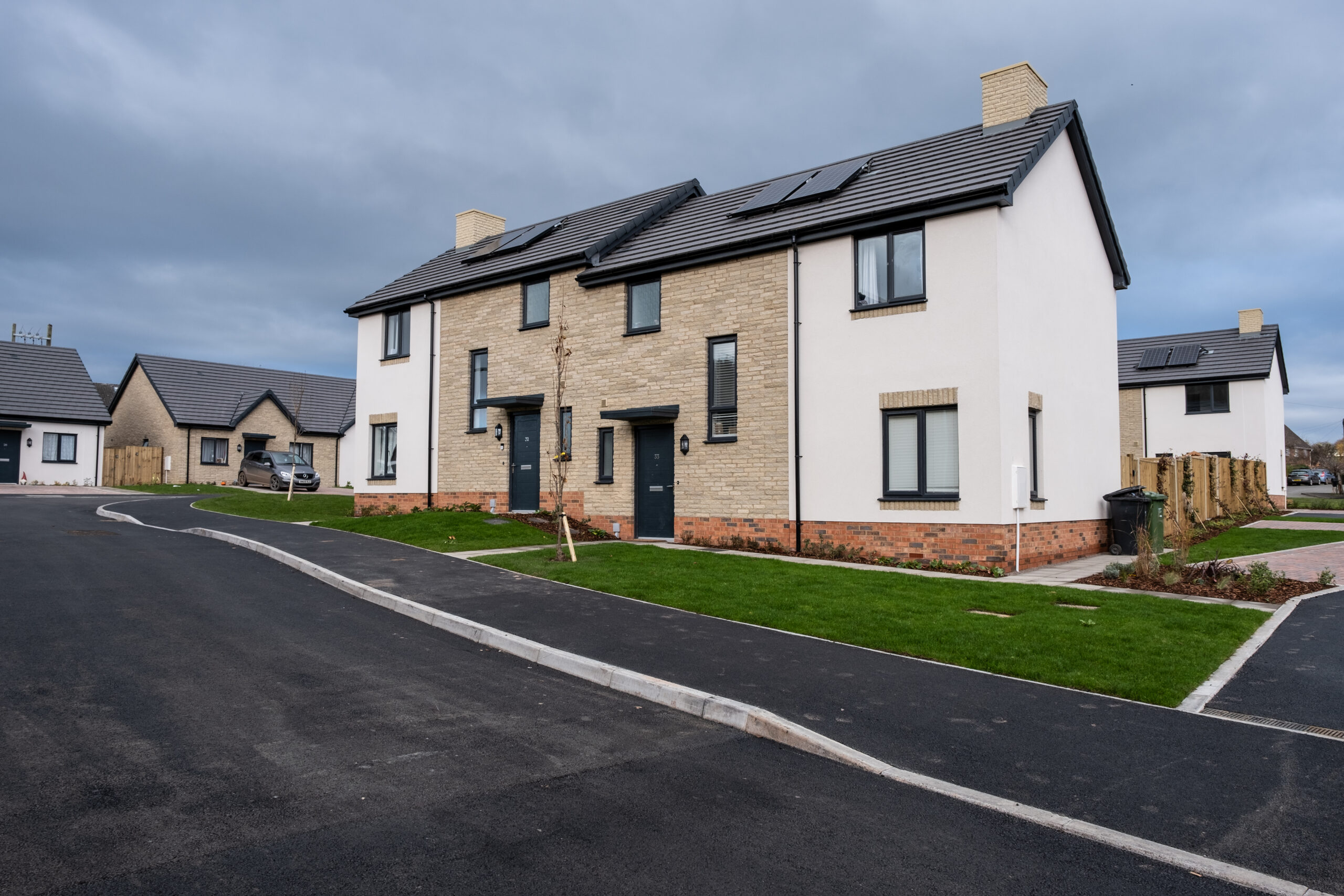
New sustainability technologies are moving at a faster pace than ever. Here, James Bradbury, Director of Development Operations at Stonewater, looks at the innovations the social landlord has seen throughout its journey to 6,000 homes and their effect on construction and customers.
For Stonewater, there are two key drivers for embracing new technologies. The first is getting to net zero as quickly and efficiently as possible. The second is making our homes cheaper to run through investing in a fabric-first approach. The latter has become increasingly important in recent years amidst the ongoing cost-of-living crisis.
Construction techniques and technologies have advanced considerably over the past decade, something we’ve embraced in our aim to reduce carbon output and customer costs.
A year of milestones
In 2023 at Ewyas Harold in Herefordshire we celebrated the milestone of our 6,000th affordable home since Stonewater was established. Sustainability and the environment were at the forefront of construction plans for this site, with the homes featuring ground source heat pumps and PV panels, both technologies we’ve been using successfully to reduce customers’ bills and our use of fossil fuels for several years now.
Last year also saw us celebrating the completion of our first homes built to Passivhaus standard, four timber-framed homes on the site of an old working men’s club in Somerset. Not only are these homes highly insulated and extremely energy efficient to run, but the system used to build them is also fully recyclable when they reach the end of their life cycle.
New innovations
A newer sustainable feature we’re trialling at our development of modular homes in Swindon, due to be installed in the spring, is Future Foundations – a high-performance insulated raft foundation system. Although a very new technology, the raft foundations are looking positive – less soil disturbance due to minimal excavation and a lower energy consumption result in a reduced carbon footprint.
Other homes are benefitting from the Switchee system, which helps save residents money and reduce energy wastage using smart thermostats. And we’re also trialling Wondrwall technology on other developments, a system which automatically adapts a home’s heating, lighting and security according to the customers’ routines. This could be a real game-changer in the way customers use and run their homes.
Customers key to success
With customers’ living experiences a key reason for introducing these innovations, we want them to be happy with the technology they have around them and live with day-in, day-out, and to be able to get the most from it, reducing their outgoings and increasing their comfort levels.
Evolving our customer services to match these fast-paced improvements is vital. Recognising that some of these new innovations are quite ‘techy’ and need customer input, and that this can lead to concern from some customers who aren’t used to smart apps and homes run by software, a new level of education, training and support has become part of the moving-in process.
Older homes
On our journey to net zero, three years ago Stonewater took the stance that we wouldn’t approve any new homes with fossil fuel heating, a bold move but one we felt was necessary in our efforts to make a marked difference to the environment and our customers’ lives. But what about our older homes?
An exciting partnership with Kensa Heat Pumps has seen us install over 200 ground source heat pumps to existing homes, and, as part of the Oxford Energy Superhub, we have also installed Switchee thermostats alongside them. With these technologies working together, the time that heating is used can be automatically changed to cheaper and lower carbon times of the day, meeting our drivers of reducing carbon and running costs in our homes, and potentially saving residents up to 20% on their bills.
We’re also the first housing provider working with Kensa to pilot a new prototype heat pump designed to store excess heat and maximise cheaper electricity, which it is hoped will be part of our future technologies and work to remove fossil fuel heating from all our homes.
The journey continues
Having recently launched the Greenoak Centre of Excellence, a collaborative initiative from Stonewater and Greenoak Housing Association, we have taken our aim to identify and highlight the most effective routes for the housing sector to achieve a zero-carbon future one step further.
We continue to monitor how technology performs in new builds and older homes, whether timber framed, Passivhaus or modular, and compare and contrast with traditionally constructed properties, ensuring we continually embrace the best technologies with the results we strive for.
While we’re still on the journey to understand what our default position should be when considering sustainable innovations and technologies, which will always be under constant review, one thing is for sure – technology is not standing still, and neither are we.





